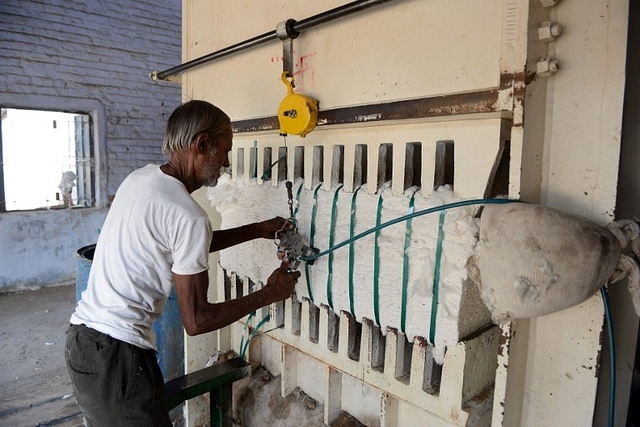
An Idea: How About Zero Corporate Tax for SMEs?
It’s the small and medium scale enterprises (SMEs) that generate jobs. It’s they who must get tax relief. Large business houses can employ large tax departments, consultants and advisers to exploit the loopholes to minimise their tax outgo; SMEs do not enjoy that luxury.
The Oxfam report on concentration of wealth in the world is disconcerting. One per cent of the world’s richest own close to half of the global wealth — almost as much as the wealth of the remaining 99 per cent. This writer is an entrepreneur, not a socialist by any definition. But to me this level of concentration of wealth is obnoxious, to put it mildly. But even more importantly, tax structures are so skewed that that they perpetrate this inequality.
I am reminded of a famous quote of Russell Ackoff: “Garbage dumps grow, but societies develop.” Development, not just jobless growth, is the need of the hour — I am certain that you, more than anyone else, recognise this axiom. Single-minded focus on growth alone without an emphasis on directing investment to productive sectors will leave us where we are. Affirming the status quo is not an option.
Paradox of Capital Gains Tax
Tax on long-term capital gains (held for more than one year) on equities traded through the stock exchanges is nil. Even short-term capital gains (less than one year — and even more speculative) is taxed at only 15 per cent and not on the marginal rates applicable for income tax. Hence ‘lazy money’ is put on a pedestal, but hard earned income is not.
To make matters worse, capital gains on directequity in privately held companies is taxed at 20 per cent, and that too if held for over 3 years. This is a clear signal that short term, easy to flee, investment in the secondary, speculative markets by institutional and individual investors is more welcome than primary, direct investment in job producing, innovation and entrepreneurship-driven, start-ups and enterprises. This makes no sense.
The Capital Gains Tax (CGT) structure must be reversed. Capital gains (both long- and short-term) in the secondary markets must be taxed at the applicable and prevailing marginal rates of income tax. On the other hand, long-term capital gains (more than 3 years) in direct primary investment must be completely exempted from the CGT. This will ensure that investment-worthy wealth (both individual and institutional) is incentivised to flow directly into enterprises, start-ups and SMEs that are generating jobs. It is well established common knowledge that SMEs produce a significantly and disproportionately larger share of job creation, as the economy grows.
While start-ups and SMEs are crying for capital, we have a capital gains tax structure that is completely skewed. This must be reversed now. The Sensex may temporarily crash because of this announcement and bring the wealth of the top 1 per cent down in the short term. But in the long run, it will ensure that private investment flows into more productive, job-creating sectors. It will create a huge base of angel and venture investors in such start-ups and SMEs.
Zero Corporate Tax for SMEs
All SMEs up to a certain threshold — say, sales of Rs 50-100 crore — should be completely exempt from corporate tax. This will drive more job-creating start-ups and SMEs. It will accelerate genuine wealth generation and channel private investments into start-ups and enterprises that are focussed on both Make in India and Make for India. The future of the Indian economy is in domestic consumption, unlike that of China, which was primarily driven by export-led growth.
The income tax holiday for export-driven SEZ enterprises promoted the software boom in the 1990s and early 2000s. An Income Tax holiday for SMEs can now spur the next generation boom for innovation, entrepreneurship and job creating sectors.
As important as the tax holiday, SMEs are even more hurt by the extortionist tax administration. While the large corporates can employ large tax departments, consultants and advisers to exploit every single loophole available to minimise their tax outgo; SMEs do not enjoy that luxury. This will also significantly cut down the huge costs of tax administration for the government.
India needs to create more than 10 million jobs every year for the next two decades consistently. This will be driven by an explosion of growth of SMEs, not mega investments in high capital-intensive, low-labour sectors. Corporate tax holiday for SMEs will spur this growth and leverage the huge entrepreneurship potential of India waiting to be tapped.
Drive talent and skills into productive sectors
Akin to zero Income Tax of agriculture, that for individuals working in the following sectors should be abolished. This will not make a very significant dent in the tax collection of the government. On the other hand, it will channel talent to the focus sectors.
– All individuals working in the education sector (both private and public)
– All individuals working in the health care sector (both private and public)
– All individuals working in the renewable energy sector (both private and public)
– All individuals working for SMEs with a turnover of upto say 100 crores
– All individuals working for NGOs and CSR trusts and organisations
This Income Tax tax reform will help the sectors above compete in a more level playing field for much needed talents and skills.
We need productive investments. We need investments in job creating sectors of the economy. We need diversion of talent to productive focus sectors. Tax structures must be reformed to serve these objectives.
Finance Minister Arun Jaitley needs to be bold. The Sensex investors may curse you in the short term. But they will commend your policy shift five years hence, when you fight for your next term.